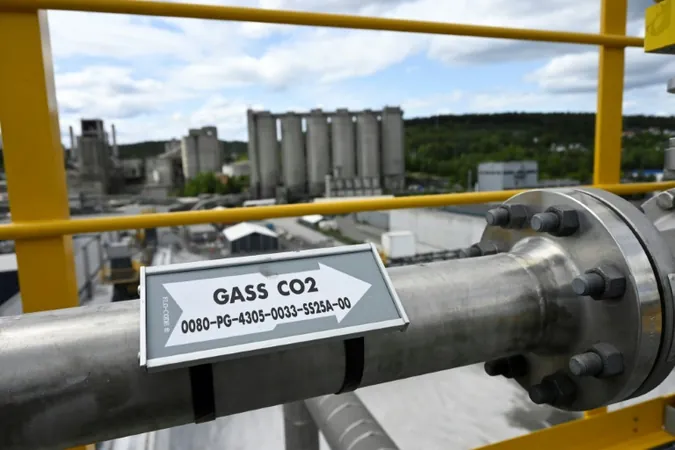
Revolutionary Study Reveals Carbon Storage Isn't Unlimited: Time to Rethink Strategies!
2025-09-03
Author: Daniel
Scientists Issue Wake-Up Call on Carbon Storage
New research has thrown a wrench in the gears of carbon capture and storage (CCS) strategies, indicating that our understanding of the potential for underground carbon dioxide storage has been vastly overestimated. The study, published in the prestigious journal *Nature*, challenges the widely-held belief that carbon storage is a limitless solution for combatting global warming.
The Reality Check on Carbon Capture
CCS is seen as a crucial weapon in the fight against climate change, aiming to capture CO2 emissions at sources like factory smokestacks or directly from the air. However, both methods depend on the ability to securely store that CO2 underground for centuries or even millennia.
Currently, carbon capture contributes a minuscule amount to addressing the climate crisis, yet many scientists and policymakers still view it as essential for achieving long-term temperature goals.
Staggering Revision: Just 1,460 Billion Tonnes Capacity
The international research team led by the International Institute for Applied Systems Analysis conducted a thorough re-evaluation of existing carbon storage estimates, ultimately revealing a global storage limit of approximately 1,460 billion tonnes of CO2—shockingly, nearly ten times less than previous scientific and industry assumptions.
Study senior author Joeri Rogelj from Imperial College London emphasized the importance of this 'reality check.' He stated, "This research corrects the working assumption of how much CCS capacity would be practically available, highlighting the need for a more restrained approach to its deployment."
Time to Treat Carbon Storage as a Scarce Resource
To arrive at this revised estimate, the researchers excluded risky or economically impractical locations for carbon storage—such as areas beneath large populations, seismic zones, or deep ocean floors. Their findings suggest carbon storage should be viewed as a 'scarce resource,' not as an endless commodity. This perspective should guide policymakers in making smarter decisions about climate interventions.
Future Implications and Urgency
The study also warns that by the year 2200, we could breach this storage capacity, though advancements in carbon capture and related technologies could potentially shift these estimates. Fully utilizing the underground carbon storage capacity could lower global temperatures by as much as 0.7°C, but the authors argue this resource should be conserved for future generations who might need it the most.
While the UN's Intergovernmental Panel on Climate Change (IPCC) acknowledges carbon capture as one option for reducing emissions—particularly in high-pollution sectors like cement and steel—current capture levels remain negligible. Rogelj pointed out that the amount of carbon captured each year now accounts for only one-thousandth of global CO2 emissions.





 Brasil (PT)
Brasil (PT)
 Canada (EN)
Canada (EN)
 Chile (ES)
Chile (ES)
 Česko (CS)
Česko (CS)
 대한민국 (KO)
대한민국 (KO)
 España (ES)
España (ES)
 France (FR)
France (FR)
 Hong Kong (EN)
Hong Kong (EN)
 Italia (IT)
Italia (IT)
 日本 (JA)
日本 (JA)
 Magyarország (HU)
Magyarország (HU)
 Norge (NO)
Norge (NO)
 Polska (PL)
Polska (PL)
 Schweiz (DE)
Schweiz (DE)
 Singapore (EN)
Singapore (EN)
 Sverige (SV)
Sverige (SV)
 Suomi (FI)
Suomi (FI)
 Türkiye (TR)
Türkiye (TR)
 الإمارات العربية المتحدة (AR)
الإمارات العربية المتحدة (AR)